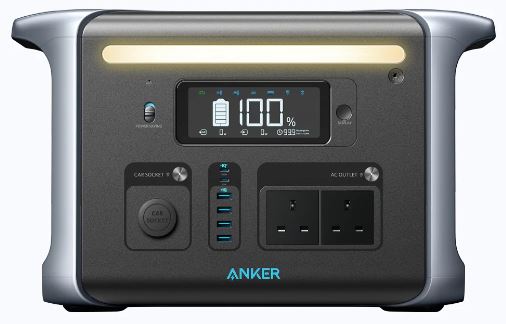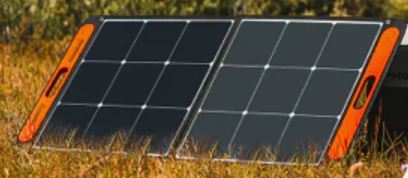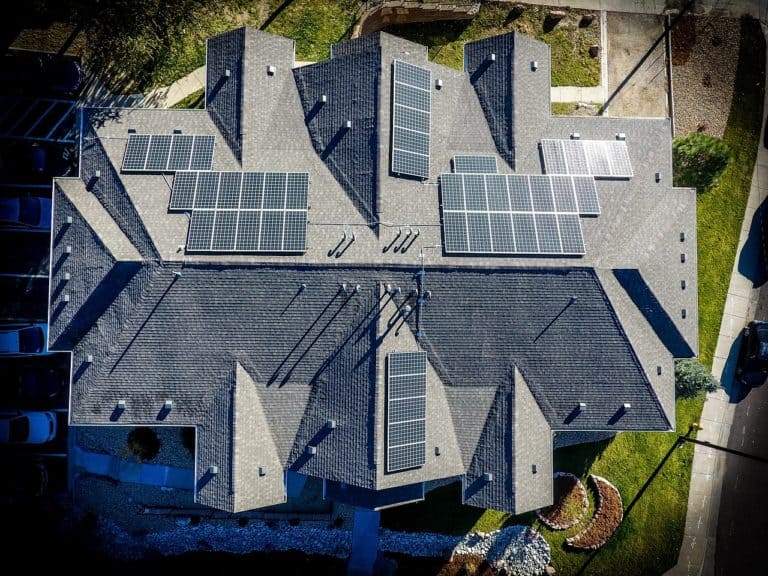Discover the best brands for solar charge controllers
When it comes to the best brands for solar charge controllers, there are several key players in the market that stand out due to their reliability and advanced technology.
In this article, we will dive into the world of solar charge controllers and explore some of these top brands.
Solar energy enthusiasts will benefit from learning about the features to look for when buying one.
They will also get to know some of the key information about each brand.
The knowledge you will gain will enable you to make an informed decision when investing in a high-quality solar charge controller.
So let’s begin our journey towards harnessing sustainable energy more efficiently by exploring the best brands for solar charge controllers available in the market.
What is a solar charge controller?
A solar charge controller is a device that protects your solar battery from harm by regulating its charging process.
It ensures that the battery does not get damaged due to overcharging, undercharging or short-circuiting.
The primary function of a solar charge controller is to manage the charging process by monitoring both the voltage and current levels in your system.
By monitoring battery temperature, state-of-charge (SOC), and overall system health, the solar charge controller can adjust its output accordingly to maximise performance.
Types of solar charge controllers
The two main types of solar charge controllers are Pulse Width Modulation (PWM) and Maximum Power Point Tracking (MPPT).
- PWM controllers employ a technique of on-off switching to keep the optimal charging voltage for your batteries.
- Maximum Power Point Tracking (MPPT) are more advanced. They constantly track the maximum power point available from your solar panels to ensure they’re operating at peak efficiency. This occurs throughout various conditions like changing sunlight intensity or fluctuating temperatures.
A solar charge controller is an important component of any solar power system that regulates the flow of electricity from a solar panel to a battery. It manages the charging process by monitoring voltage and current levels, ensuring efficient and safe charging while protecting batteries from damage.
Features to look for in solar charge controllers
When selecting a solar charge controller, it’s essential to consider various features that will help you optimise your solar energy system and protect your batteries from damage.
Here are some key factors to look for when choosing the right solar charge controller:
Maximum input voltage
The maximum input voltage determines the compatibility of the solar panels with the charge controller.
Ensure that the voltage of your chosen solar panel does not exceed the maximum input voltage, or else you may cause harm to both components.
Maximum output current
This feature refers to how much current can flow through the device without causing any harm.
This is very important because exceeding this limit could result in overheating and potential damage to both the battery and controller.
To ensure optimal performance, choose a model with a higher maximum output current than what your battery storage system requires.
Type of controller
Although PWM controllers are more affordable, they tend to be less efficient compared to their MPPT counterparts
MPPT offers better energy conversion rates and adaptability under varying weather conditions.
Learn more about these technologies by visiting our article here.
Temperature compensation feature
Batteries are sensitive to temperature fluctuations, which can affect their charging efficiency and lifespan.
A solar controller with a built-in temperature compensation feature will automatically adjust the charging voltage based on the ambient temperature.
This ensures optimal battery performance in different weather conditions. This is important if you live in an area with extreme temperatures.
Load control options
Some advanced solar charge controllers offer load control options that allow you to manage power consumption by connected devices more efficiently.
These features may include timers, automatic shut-off when batteries reach a certain level of discharge or even remote monitoring capabilities through smartphone apps or web interfaces.
Explore these options if you’re looking for greater flexibility and control over your solar energy system.
Understanding the key features of solar charge controllers will help you optimise your solar energy system and protect your batteries from damage.
Top brands for solar charge controllers
When it comes to solar charge controllers, choosing a reliable and efficient brand is essential for the longevity of your solar power system.
For those looking for a reliable and efficient brand, the following are popular choices among DIY enthusiasts and professionals alike.
Renogy
Renogy is a popular choice among both DIY enthusiasts and professionals alike.
Their range of solar charge controllers includes both PWM and MPPT models that cater to various needs and budgets.
Renogy’s reputation for high-quality products backed by exceptional customer service makes them a go-to option when selecting a solar charge controller.
Victron Energy
Victron Energy, based in the Netherlands, has been manufacturing power conversion equipment since 1975.
They offer an extensive line-up of advanced MPPT solar charge controllers with features such as Bluetooth connectivity, remote monitoring capabilities, and programmable load control options. This makes them ideal for more complex installations or off-grid systems.
EPEVER
EPEVER is a reliable manufacturer that specialises in MPPT solar charge controllers, which are highly efficient and affordable.
These controllers have gained popularity among solar enthusiasts due to their advanced features like temperature compensation and comprehensive battery protection, ensuring the safety and durability of your batteries.
Phocos
Phocos is also a reputable brand that specialises in PWM and MPPT solar charge controllers.
With a variety of models available to suit different system sizes, finding the ideal controller for your solar setup is made easy with Phocos.
Outback Power
The American company Outback Power specialises in providing renewable energy solutions specifically designed for harsh environments like deserts or coastal areas where corrosion can be an issue.
Their FlexMax series of MPPT solar charge controllers are well-regarded due to their durability, reliability, and ability to handle high input voltages from large-scale PV arrays.
Morningstar Corporation
Morningstar Corporation is another leading brand in the solar charge controller market, offering both PWM and MPPT models.
They are famous for their sturdiness and superior efficiency. Morningstar’s products are used in various residential, commercial, and industrial settings globally.
MidNite Solar
MidNite Solar, based in America produces a wide range of solar power equipment including charge controllers.
Their Classic series of MPPT controllers come with features like arc fault protection and ground fault protection – making them an excellent choice for safety-conscious users.
Schneider Electric
A global leader in energy management solutions, Schneider Electric offers a line of Conext MPPT solar charge controllers that provide maximum efficiency while ensuring battery longevity.
These controllers also feature advanced communication options for easy monitoring and control.
Steca Elektronik GmbH
Steca Elektronik GmbH is a German company known for its precision engineering expertise. They have been manufacturing top-quality solar electronics since 1976.
Steca’s range of PWM and MPPT solar charge controllers are designed to deliver reliable performance even under challenging conditions such as extreme temperatures or fluctuating input voltages from PV panels.
Choosing a reliable brand is crucial for the longevity of your solar power system.
Wrapping up
The popular brands mentioned above have established themselves as leaders within the industry by consistently delivering high-quality products backed by excellent customer support services.
When selecting your next solar charge controller, consider one of these reputable companies to ensure you receive the best possible product suited to your needs.
Also remember that when choosing a solar charge controller, it is important to consider some important features like input voltage, output current, type of controller, temperature compensation feature and lead control.
By using a high-quality brand like those mentioned above, you can ensure that your solar charge controller will perform efficiently and effectively for years to come.
FAQs
Which is the best solar charger controller?
The best solar charge controller depends on your specific needs and system requirements.
However, some top brands include Victron Energy, Outback Power, MidNite Solar, and Morningstar. These companies offer high-quality products with excellent efficiency and reliability.
Which MPPT controller is the best?
The most suitable MPPT (Maximum Power Point Tracking) controller for you will depend on factors like budget, system size, and features required.
Some highly-rated options are the Victron SmartSolar series, Outback Flexmax series, MidNite Solar Classic series, and EPever Tracer AN Series.
Which type of charge controller is the most efficient?
MPPT controllers are generally more efficient than PWM (Pulse Width Modulation) controllers as they can extract up to 30% more power from your solar panels by continuously adjusting their voltage output to maximise energy harvest.
What are the ratings for solar charge controllers?
Solar charge controllers have two main ratings: current rating (measured in amperes or amps) and voltage rating (measured in volts).
These determine how much power a particular model can handle. Common current ratings range from 10A to 60A while common voltage ratings range between 12V to 48V systems.






